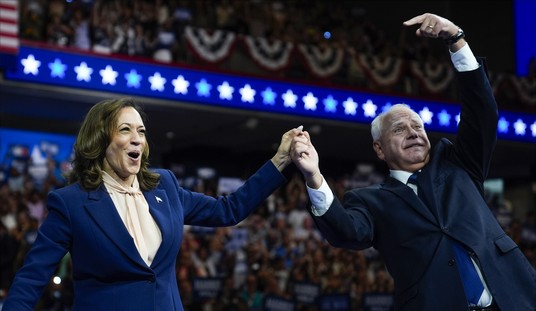A minister and founding member of a Black Lives Matter chapter in Savannah, Georgia, recently published a mock gospel in which President-elect Donald Trump replaces Jesus Christ.
Jomo Johnson, a long-time minister formerly associated with the conservative reformed Presbyterian Church in America, published The Gospel: King Trump Version Bible on Amazon, the day after Christmas last year. The book replaced Jesus with Trump, but not as a form of idolatry so much as a form of satire. The Amazon description explained the book as “a literal indictment against the Evangelical Church.”
“What this Gospel does is the same thing Christian Trump supporters did during the election: take Jesus out in order to put Trump in,” the description reads. “The book puts the campaign actions and sayings of Donald Trump in the biblical format of the Gospel of Mark, as a witness against all those who claim the name Christian while also voting for Trump. And as the Republican National Committee wrote on Christmas to their followers, ‘Herald Your New King.'”
Indeed, many surveys showed evangelical Christians supported Trump by wide margins in November. A famous Pew Research Center survey concluded that 81 percent of white evangelical Protestants voted for the Republican. Another survey found that 80 percent of conservative pastors voted for Trump, but that they had serious misgivings about his character nonetheless. Indeed, a Barna Research Group study found that Trump won every single Christian demographic, while Clinton won every single non-Christian one.
According to Johnson, a self-described “progressive evangelical,” this was unacceptable. This voting pattern “seemed to be a continuing trend of American Christianity that kind of replaces the Gospel with pieces of the capitalistic gospel,” the author told The Christian Post. His wrath against such alleged subversion of Christianity led him to write the book.
As for the content of the book, “it follows actions, sayings, statements, and things that Trump has done throughout the campaign and beyond, kind of in place of the Gospel,” Johnson said. “It broke down the Gospel of Mark, kind of the same literary form and same sequence and same challenges. It is Trump replacing Jesus in the Gospel and the implications of that.”
Like any decent satire, the gospel according to Trump presents real situations from the campaign and narrates them in intriguing ways. For example, the book recalls an answer Trump gave when asked if he ever asked God for forgiveness. In July 2015, he admitted, “I’m not sure I have ever asked God’s forgiveness. I don’t bring God into that picture.” He also added, “I try not to make mistakes where I have to ask forgiveness.” This confession casts serious doubts on whether Trump is truly a Christian as he claimed.
Johnson’s book took these lines and transformed them into a Trumpian parable. Here is a brief excerpt:
He took a mirror which he placed in front of himself. Taking the mirror in his hands, he said to them, “Whoever can look in this mirror and see no need to apologize, repent, or ask forgiveness, is the greatest. Can any of you do that?” They all put their heads down. “That’s what I thought. That’s why I’m running for President and you’re not.” He then dropped the mirror and left the room.
Trump likely never spoke these words, but the style matches his classic bravado and emphasizes the spirit behind his approach to not asking God for forgiveness. This kind of serious theological critique may not be representative of the entire book, however.
“I think American evangelicalism has kind of embraced self-centered conservative values that hasn’t reflected a great concern for minorities, women and immigrants,” Johnson told The Christian Post. This emphasis on identity politics suggests that while some of this book critiques Trump on the basis of serious biblical concerns, much may focus on the classic liberal attacks that Trump is a racist, sexist, and xenophobic. After all, Johnson supports Black Lives Matter and considers himself a “progressive.”
Furthermore, voting for Donald Trump is far from the same thing as worshipping him, much less replacing Jesus with the businessman. While more than a few Christian leaders went too far in declaring Trump to be God’s chosen, the vast majority of Republicans and evangelicals did not do what Johnson accuses them of doing.
This does not mean liberals do not have important suggestions for evangelical self-criticism, but the fact of the matter is that many Christians voted for Trump because they wanted to vote against Hillary Clinton. Indeed, Clinton arguably represented an insidious threat to traditional Christianity. In an era when religious freedom is put in scare quotes and attacked as an excuse to “discriminate” against LGBT people, it is understandable that many Christians opposed another 4 years of liberal ideology in power.
Nevertheless, Johnson’s book could present important lessons for gospel-centered Christians to learn. “I think that evangelicalism as a whole needs to be confronted with itself,” the author told The Christian Post. “I have heard some evangelicals say that ‘You can call me an evangelical for now,’ suggesting that there might come a time pretty quickly when we don’t want to be identified by that title.”
Indeed, a recent study showed that nearly half of biblical Christian church leaders are hesitant to describe themselves as “evangelical” to non-Christians. Many of them explicitly cite political reasons for this. It is painful to hear the term “evangelical” compared to the term “feminist” because both have been politicized.
Johnson approached these issues from a liberal mindset, and that has likely clouded his vision about why evangelicals backed Trump in November. Indeed, his tone-deaf interpretation of the RNC’s statement hailing a “new King” (which clearly referred to Jesus, not Trump) suggests just this kind of blindness. But when it comes to the issue of needing to ask God for forgiveness, his critique of Trump is not narrowly liberal or “progressive.”
Last November, on the eve of the election, I spoke with eleven young conservative Christians — most of them loyal to the Republican Party — who could not stomach supporting Donald Trump. Many conservative Christian leaders also found themselves in a similar position. Indeed, during the Republican primary, it was discovered that while Trump won most of the self-described evangelical voters, his largest margins of victory came in counties with low church attendance rates.
The American church struggles with many demons — it is packed with sinners, after all — but Johnson’s book falsely accuses evangelicals of idolizing Trump when the data suggest they do not. Christians should arguably restore the religious (and not political) meaning of “evangelical.” Conservative Christians should also understand how vocally supporting Trump could do damage to many people’s understanding of the gospel.
But liberal Christians also need to burst out of their bubble. Primarily, people like Johnson need to learn that voting for Trump is not the same thing as putting him in Jesus’ place.









Join the conversation as a VIP Member